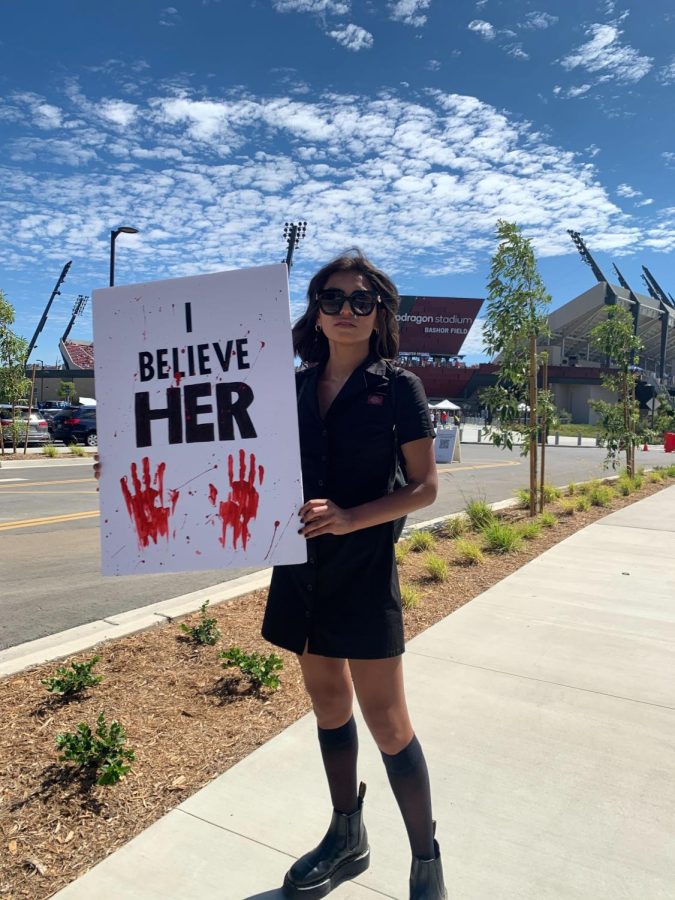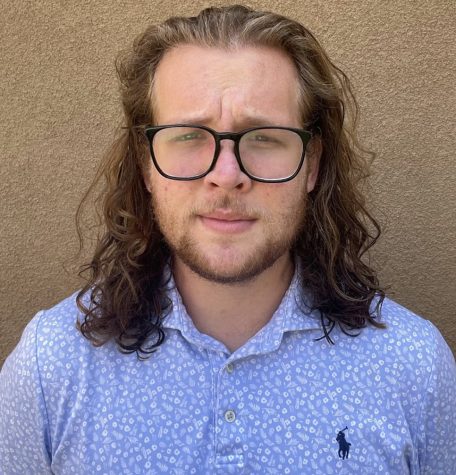On Sept. 14, a new lawsuit was filed by the lawyer of the young woman allegedly raped by three former San Diego State football players.
According to the suit filed, attorney Dan Gilleon requested documents under the California Public Records Act (CPRA) from the City of San Diego and the San Diego Police Department regarding results of the rape exam and other aspects of the investigation. Gilleon claims the Police Department failed to comply with the CPRA requests.
The California Public Records Act requires government records be disclosed to the public upon request, unless there are privacy and/or public safety exemptions which would prevent doing so. According to the San Diego Union-Tribune, the Police Department cited several exemptions in the documents sent by Gilleon.
The second lawsuit comes off the back of a civil lawsuit filed in August that claimed former Buffalo Bills punter Matt Araiza, Zavier Leonard and Nowlin “Pa’a” Ewaliko gang-raped a 17-year-old girl almost a year ago at an off-campus party.
On Oct. 5, the Office of the President at San Diego State University sent out a campus-wide email updating the community on the case. Adela de la Torre informed the student body that SDSU’s investigation into the incident is now officially active.
The lengthy process does not sit right for many SDSU students, faculty, staff and community members. De la Torre addressed this in the campus-wide email.
“I know the delay in resolution is frustrating and upsetting to members of our community, as we have waited nearly one year to learn the outcome of SDPD’s criminal investigation,” de la Torre said. “While this is typical for complex cases like this, which involve multiple individuals, the wait required by due process is still incredibly emotionally and physically taxing to so many of us.”
San Diego Police Department’s investigation is ongoing and has updated the community with information surrounding the DNA results from the rape examination of the young woman.
According to the San Diego Union-Tribune, the Police Department found that DNA profiles of multiple assailants were identified from the rape examination. None of the profiles were found in the Department of Justice DNA database of convicted offenders.
The District Attorney’s Office has yet to make a decision on whether or not to pursue criminal charges following the suit and no one involved in the incident has been charged to this date.
This absence of criminal charges has sparked action inside the SDSU community.
On Sept. 24, a one-person protest regarding the case occurred at Snapdragon Stadium when SDSU faced off against Toledo.
Protester Trinity Martinez brought a sign that read “I Believe Her” and voiced her disapproval of the lack of progress in the case.
“I’m here protesting just because this case almost a year later hasn’t had any progress. And this young girl who’s had her life affected hasn’t had any justice,” Martinez said. “And it just seems like this is an ongoing issue in regards to sports and football especially.”
“And I couldn’t stomach knowing that bad people, like these types of men, continue to get rewarded for their behavior when these women are left to deal with the repercussions of picking up their life after something so violent.”
Martinez said SDSU’s handling of the case was disappointing and hopes there is more transparency from the school.
“I would like to see more transparency with the school, especially if my tax dollars are going to fund a $380 million stadium. And things like this are being kept in the dark,” Martinez said. “And as a community member, I want to know what my tax dollars are going to. I don’t want it to be covered in blood money.”











